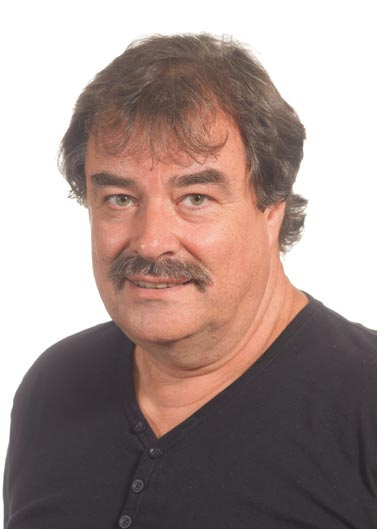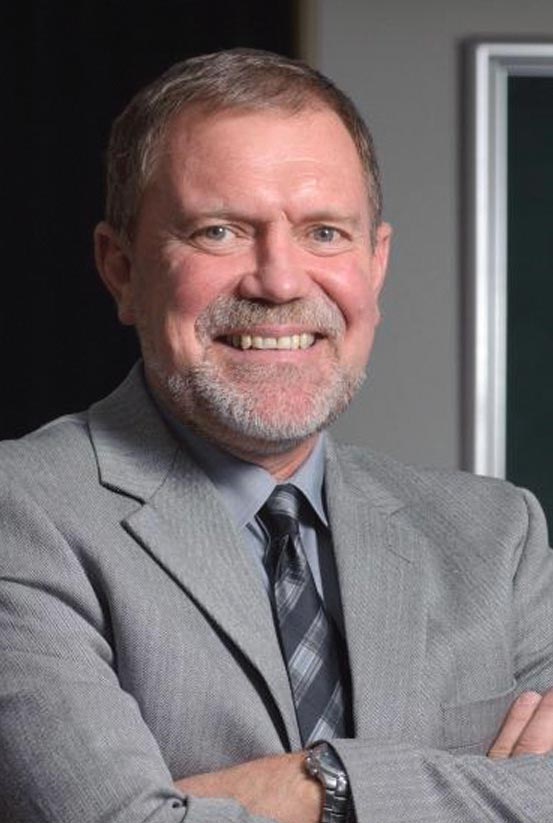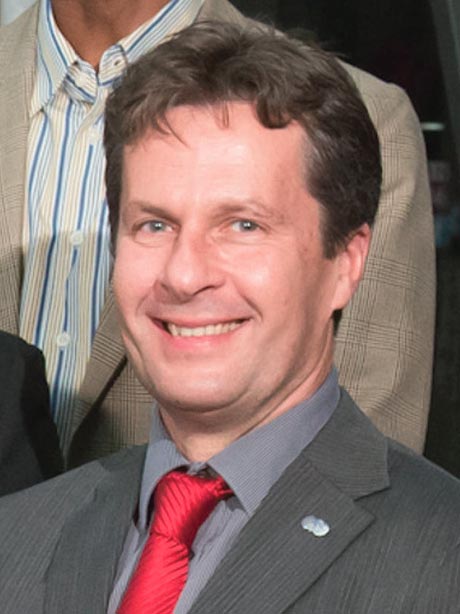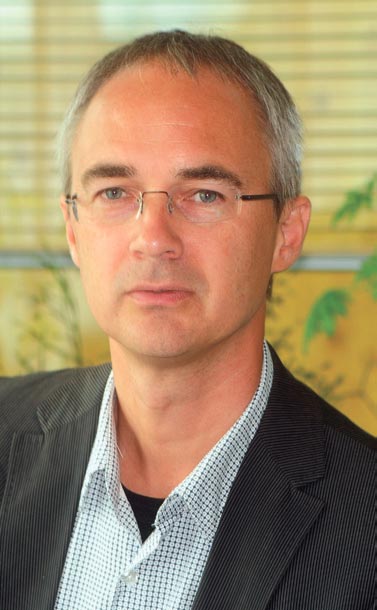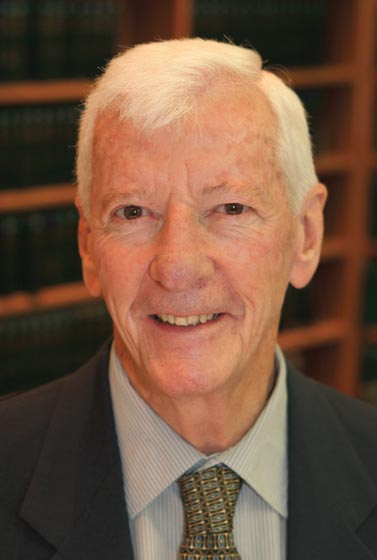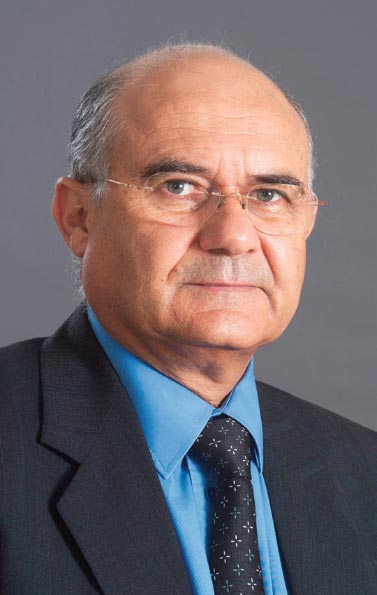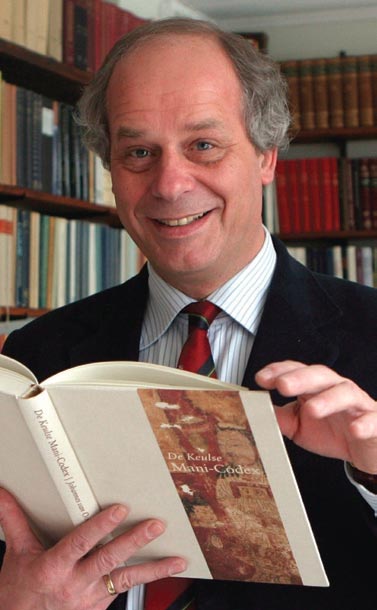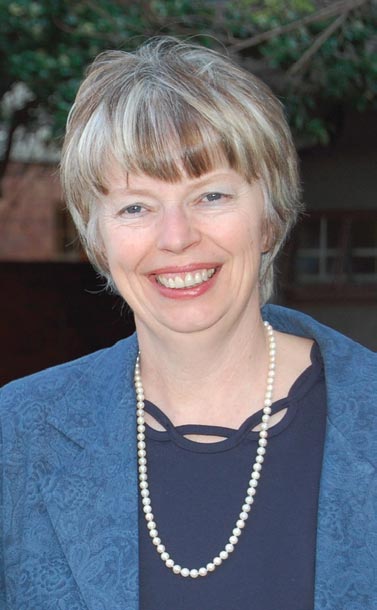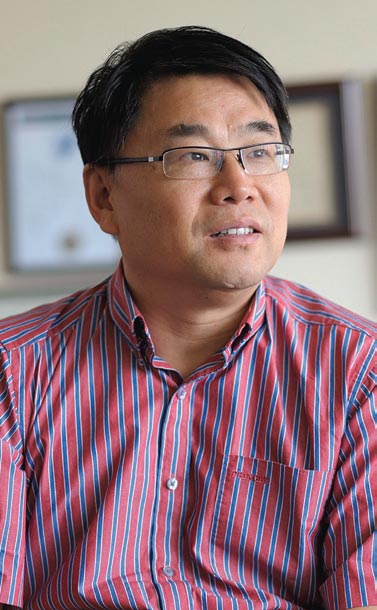Professor Nigel Bennett in the Department of Zoology and Entomology holds the UP Austin Roberts Chair of African Mammalogy andthe DST-NRF SARChI Chair of Mammalian Behavioural Ecology and Physiology.
Professor Bennett’s research investigates the ecological and physiological factors that affect the control of reproduction and the evolution of sociality. Molecular approaches, together with innovative laboratory and field methods, are used to unravel the mechanisms by which evolution can shape change in socially occurring vertebrate species. The family Bathyergidae has turned out to be an ideal model group for investigating the evolution of sociality and, as a consequence, contributes to the interdisciplinary efforts in the study of the causes and consequences of sociality.
www.up.ac.za/zoology-entomology
Professor Drucilla Cornell is Extraordinary Professor in the Department of Jurisprudence at UP and Professor in Political Science at Rutgers University, US.
Professor Cornell’s work has looked at areas such as ethical humanism aimed at reviving black existentialism and radical constitutionalism to counter dominating historicism, imperialism and neo-colonialism. She has also researched female and racial subordination and liberalism post-9/11, particularly in the face of wars in regions such as Afghanistan and Iraq. Of importance too is her work with the Ubuntu project at UP. Established in 2012, the project promotes the status and importance of indigenous values and ideals across various areas of society.
www.polisci.rutgers.edu/cb-profile/userprofile/dcornell
Professor Don Cowan is the Director of the Genomics Research Institute and the Centre for Microbial Ecology and Genomics in the Faculty of Natural and Agricultural Sciences.
Professor Cowan has a primary interest in the microbial ecology of soil habitats, including hot and cold desert soils. For the past decade and a half he has worked at both ends of the biological temperature scale, studying psychrophilic microbiology of the Dry Valleys of Eastern Antarctica, and the thermophilic microbiology of the Namib Desert. He collaborates with local, national and international researchers on many other metagenomic projects, ranging from studies of the roles of microbial communities on agricultural crop productivity, in sub-Antarctic peat bogs, to the development of human prostate cancers. His newest research programme is the development of a large consortium of researchers to undertake a landscape-scale survey (for the first time) of the microbial diversity of southern African soils.
www.up.ac.za/CMEG
Professor Pedro Crous is an Associate Professor in FABI, linked to the DST-NRF Centre of Excellence in Tree Health Biotechnology and the Tree Protection Cooperative Programme. He is currently Director of the CBS-KNAW Fungal Biodiversity Centre in Utrecht, The Netherlands.
As a phytomycologist Professor Crous’s main interest lies in the evolution and phylogeny of plant pathogenic fungi, especially Dothideomycetes, Diaporthales and Hypocreales. Understanding and defining species means that the importance of sex (recombination) cannot be ignored. His research has shown that many plant pathogens have both mating type genes, and may be having cryptic sex, which also has serious implications for disease control and rates of evolution. He is interested in intra- and interspecies variation, and how this relates to host specificity and speciation. Professor Crous actively pursues integrating DNA data with morphology and ecology. In this regard he initiated MycoBank to capture all fungal names, and now links taxa to their DNA data, cultures, specimens and ecology.
www.cbs.knaw.nl
Professor Erika de Wet is Professor of International Law in the Faculty of Law and holds the DST-NRF SARChI Chair in International Constitutional Law in the Faculty of Law.
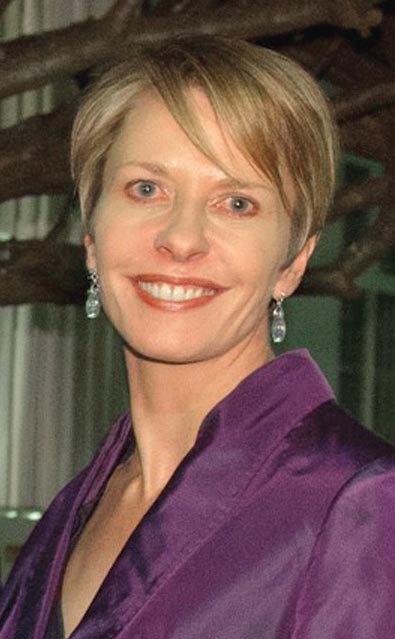
Professor De Wet’s research examines the legal consequences that the exercising of public power by international organisations such as the United Nations and the African Union have for states and for those living in their territories. This includes the problems states face in implementing binding decisions of international organisations while giving due effect to other international obligations and constitutional principles of fundamental importance. She was the founding Co-Director of the Institute for International and Comparative Law in Africa (ICLA) at UP. Since October 2015 she has been a fellow at the Käte Hamburger Centre for Advanced Study (‘Law as Culture’) in Bonn (until July 2016). She has held various national and international editorial positions and is a member of the Scientific Advisory Board for Development Policy of the Max Planck Foundation for International Peace and the Rule of Law, as well as of the General Council of the International Society of Public Law (ICON-S). Professor De Wet is a Honorary Professor in the Faculty of Law of Bonn University.
www.icla.up.ac.za
Professor Andries Engelbrecht is Head of the Department Computer Science in the Faculty of Engineering, Built Environment and Information Technology. He is the current incumbent of the DST-NRF SARChI Chair in Artificial Intelligence.
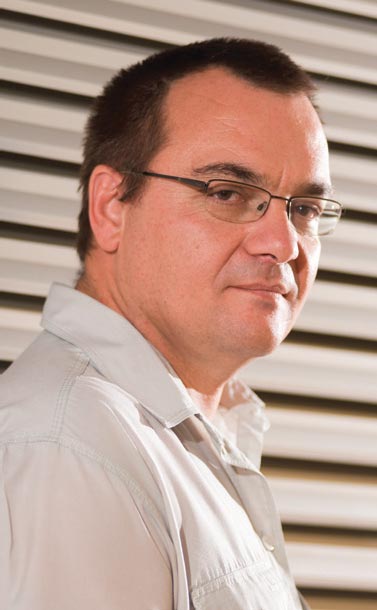
Professor Engelbrecht’s main research focus is artificial intelligence with a specific focus on computational intelligence, particularly computational swarm intelligence, learning from zero knowledge using competitive coevolution, evolutionary algorithms, artificial neural networks and image and data analytics. His research team developed an open source library of computational intelligence algorithms, which is increasingly being used internationally. They were the first to provide convergence proofs of particle swarm optimisers (PSO), to develop PSO algorithms to find multiple solutions to optimisation problems, to solve optimisation problems where solutions are represented as sets, to deve op PSO-based hyper-heuristics, to use PSO for secondary RNA structure prediction, to use PSO for image segmentation, and they have developed PSO and differential evolution algorithms to cluster non-stationary data. They have also developed new measures to characterise fitness landscapes of continuous-valued optimisation problems.
www.cs.up.ac.za/research
Professor Robert Millar is Director of the Centre for Neuroendocrinology in the Faculty of Health Sciences.
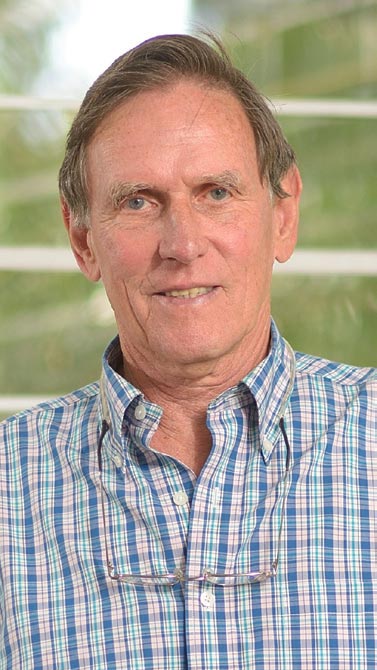
Professor Millar’s work has made major impacts in areas of human reproduction, hormone replacement and the treatment of disease such as cancer. His recent research has focused on gonadotropin-releasing hormones (GnRH), pioneering the discovery of GnRH prohormones and novel GnRHs. His group participated in a collaborative effort for the first cloning of the GnRH receptor and the discovery of GnRH subtypes. As a result, great strides have been made in the development of anti-cancer drugs. Furthermore, he has been involved in successfully taking eight drugs into the clinic for treating diseases such as prostatic cancer, endometriosis, infertility, and polycystic ovarian syndrome. Most recently his group discovered molecules that can rescue function of mutant human receptors, which has implications for conditions such as retinitis pigmentosa causing blindness. In 2015, it was announced that Professor Millar was awarded the John FW Herschel Medal for 2016, the Royal Society of South Africa’s most prestigious medal, for his exceptional contribution to science in South Africa.
www.up.ac.za/en/institute-for-cellular-and-molecular-medicine/
Professor Yves Van de Peer is in the Department of Genetics at UP and Professor in Bioinformatics and Genome Biology in the Department of Plant Biotechnology and Bioinformatics, Ghent University, and the Department of Plant Systems Biology, VIB.
Professor Van de Peer was the first to suggest a correlation between whole genome duplication events in different plant lineages and the Cretaceous-Paleogene boundary, caused by the Cretaceous-Paleogene extinction event that wiped out about 70% of all organisms, including dinosaurs. Although whole genome duplications are usually an evolutionary dead end, research in Professor Van de Peer’s laboratory suggested that, during periods of environmental upheaval, entire genome duplications can provide organisms with a selective advantage so that polyploids can out-compete their diploid progenitors. The research group of Yves Van de Peer is widely recognised for its expertise in gene prediction and genome annotation and comparative and evolutionary genomics, and is involved in several international genome projects.
www.up.ac.za/the-genomics-research-institute
http://bioinformatics.psb.ugent.be
Professor Johan van der Vyver is Extraordinary Professor in the Department of Private Law, University of Pretoria.
Professor Van der Vyver is an expert in human rights jurisprudence and the international criminal court, and actively participated in efforts to end apartheid and bring constitutional reform to his native South Africa. He has also served as a fellow in the Human Rights Program of The Carter Center in Atlanta. His research interests and publications include human rights, public international law, international criminal law, humanitarian law, and a great variety of other subject-matters.
http://cslr.law.emory.edu/
Professor Charles van Onselen is Research Professor in the Centre for the Advancement of Scholarship.
Professor van Onselen’s particular interest lies in the phenomena of crime-as-politics, as exemplified by issues of social banditry, and politics-as-crime, as manifested in the ways in which members of the political elite engage in criminal activities in order to facilitate the accumulation of corporate or personal wealth, as enabled through the processes of corruption. Although these historically rooted problems occur in many parts of the world, they are particularly prominent themes in contemporary South African history. His latest book,
Showdown at the Red Lion: The Life and Times of Jack McLoughlin, 1859-1910, vividly illustrates the biographer’s craft in his tracing of South Africa’s industrial revolution and patterns of social control and collective working class behaviour.
www.up.ac.za/centre-for-the-advancement-of-scholarship
Professor Johannes van Oort is Extraordinary Professor in the Department of Church History in the Faculty of Theology.
Professor Van Oort’s areas of research are the rise of Christianity in the Jewish, Greek and Roman contexts; the history of the Early Church, with particular emphasis on Gnostic movements; and the theology, sources and influence of Augustine of Hippo.
https://up-za.academia.edu/JohannesvanOort
Professor Brenda Wingfield is the Deputy Dean (Research) in the Faculty of Natural and Agricultural Sciences and Professor in the Department of Genetics. She holds the SARChI Chair in Fungal Genomics.
Professor Brenda Wingfield’s research focus is on speciation and evolution of fungi, predominantly non-model
Ascomycetes. This includes research on genetic variation within as well as between species. The group enjoys substantial international recognition with respect to research on the molecular systematics and population genetics of fungal pathogens, and is considered as one of the leading teams worldwide that is involved in the development of molecular diagnostic techniques for the identification and classification of pathogenic fungi. Professor Wingfield also has an interest in basic evolutionary biology based on ribosomal RNA-genes which extends beyond fungi, and has a variety of collaborations with research groups working on a range of organisms. Much of this collaboration is in association with the tree pathology research group and the DST-NRF Centre of Excellence in Tree Health Biotechnology in FABI.
www.fabinet.up.ac.za
Professor Mike Wingfield is the founding Director of the Forestry and Agricultural Biotechnology Institute (FABI) at UP. He is also President of the International Union of Forest Research Organisations (IUFRO), one the largest and oldest scientific unions representing more than 15 000 forestry scientists globally.
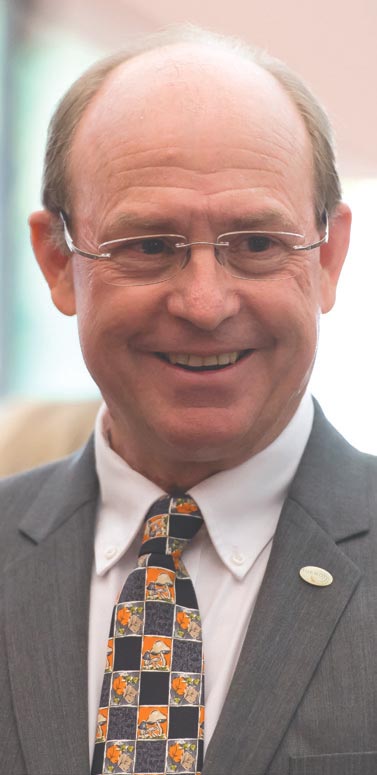
Professor Mike Wingfield’s research focuses on fungal diseases that threaten forests and forestry globally. Using a broad range of approaches (especially molecular genetic techniques), pests and pathogens arising in many different countries of the world are identified – often for the first time. Research efforts seek to understand the drivers of tree pest invasions and to find methods to reduce the damage that they cause. His research programme falls under the umbrella of two major programmes: The Tree Protection Cooperative Programme, a cooperative venture between the University of Pretoria, all forestry companies in South Africa, the industry body Forestry South Africa (FSA), and the government Department of Agriculture, Forestry and Fisheries (DAFF). The second major programme is the DSTNRF Centre of Excellence in Tree Health Biotechnology where the research focus is on the health of native trees and native woody ecosystems in South Africa, and particularly how pests and pathogens move between this environment and non-native trees planted for commercial purposes for forestry, fruit production and as ornamentals. As IUFRO President, he actively promotes efforts to enhance evidence-based policy formulation on which the future of forests and the associated ecosystem services and global food security depend.
www.fabinet.up.ac.za/mwingfield
Professor Xiaohua Xia is Director of the Centre of New Energy Systems (CNES) and holds the Exxaro Chair in Energy Efficiency.
Professor Xia heads the South African National Hub for the Postgraduate Programme in Energy Efficiency and Demand-side Management hosted by CNES. His research interests are control systems and automation, and more recently, the modelling and optimisation of energy systems. This includes non-linear feedback control, observer design, time-delay systems, hybrid systems, modelling and control of HIV/Aids, control and handling of heavy-haul trains and energy modelling and optimisation. In March 2015 he presented a lecture as part of the UP Expert Lecture Series titled: “Energy efficiency and demand side management: do they still come to the rescue?” The central question addressed was whether energy efficiency and demand side management can still rescue the country from its energy predicament.
www.ee.up.ac.za/~xxia
